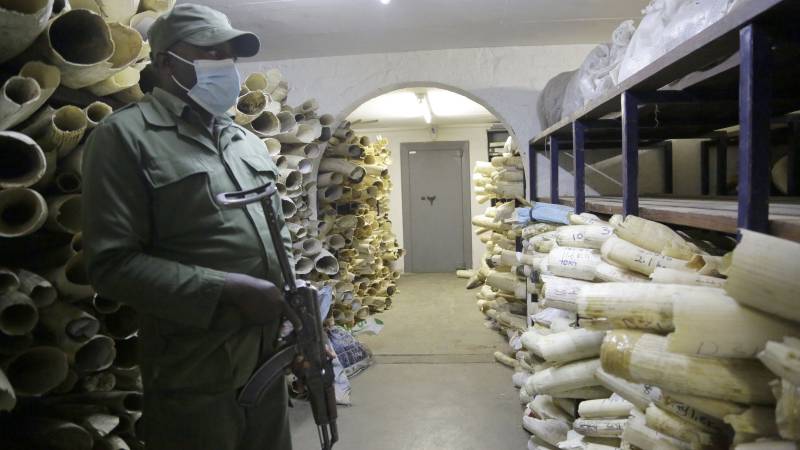African ministers are meeting in Zimbabwe from today to discuss the Common Elephant Policy. Zimbabwe wants support there for a plan to allow ivory to be sold again.
It was banned more than thirty years ago by the CITES regulations, an international treaty that mandates trade in animals and plants. Zimbabwe has signed this agreement, but wants a one-time exception.
The country has 130 tons of ivory in storage, with an estimated value of more than $500 million. Elephant tusks come from captured poachers and from elephants that have died naturally.
Zimbabwe says the money ivory can raise is essential to managing its elephants. The state, among other things, refers to the consequences of the Corona pandemic, as a result of which insufficient income was obtained from tourism. As a result, Zimbabwe can invest less money in nature conservation.
Nature organizations are vehemently opposed to
The Elephant Summit, being held at the edge of Zimbabwe’s largest safari park, will be attended by 14 African Ministers of Nature and Tourism, among others. It is also joined by representatives from Japan and China, the ivory sales markets.
In the lead-up to the summit, 45 nature conservation organizations, which operate in South Africa and Zimbabwe, among other places, wrote a letter. They strongly oppose lifting the trade embargo, saying it threatens the elephant’s survival.
“The African elephant is closer to extinction than we think,” they wrote. They call the elephant crest a “dangerous signal to poachers and crime gangs that elephants are a commodity.” The fear is that if the ivory trade is allowed, it will also increase demand and cause more poaching. Ivory is still traded on the black market and used to make jewelry. They are still popular in East Asia.
Opponents of the ivory trade also fear that it will be difficult to control the black market if there is a trade in legal ivory. It can be smuggled with legal ivory and washed. Conservation groups write that CITES has twice allowed one-time ivory sales in the past, noting that this has led to an escalation of poaching.







